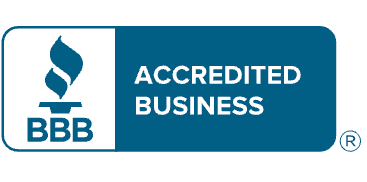How Do I Ensure My Electrical Installations Are Up to Code?
Electrical codes exist to ensure safety, functionality, and efficiency in homes and businesses. Adhering to these regulations not only protects occupants but also prevents costly fines or repairs. Whether you're tackling a new build, renovation, or a small project, understanding how to ensure your electrical installations are up to code is essential. Here's a guide to help you navigate the process.
1. Understand the National Electric Code (NEC) and Local Variations
The National Electric Code (NEC) is the benchmark for safe electrical design and installation in the United States. However, local municipalities often have additional requirements.
Key Areas Covered by the NEC:
Solution:
Familiarize yourself with both the NEC and local electrical codes. Consulting with a licensed electrician who understands these regulations ensures compliance.
2. Hire a Licensed Electrician
While DIY projects can be tempting, electrical work is best left to professionals. Licensed electricians are trained to meet code requirements and can save you from costly mistakes. Benefits of hiring a professional include:
3. Obtain the Necessary Permits
Electrical work often requires permits from your local building authority. These permits ensure that the project is inspected for compliance with the code. Common project that require permits include:
Solution:
Check with your local building department to determine if your project requires a permit. A licensed electrician can often handle this process on your behalf.
4. Use Code-Compliant Materials
Using the right materials is just as important as proper installation. Substandard or non-compliant components can fail inspections and pose safety risks. A few key components to consider include:
5. Focus on Grounding and Bonding
Grounding protects people and appliances by directing excess electricity safely into the earth. Bonding connects conductive parts to ensure they remain at the same electrical potential, reducing the risk of shock. Common code requirements for grounding include:
Solution:
Have your grounding and bonding inspected by a professional, especially during new installations or upgrades.
6. Install GFCI and AFCI Protection Where Required
Ground Fault Circuit Interrupters (GFCIs) and Arc Fault Circuit Interrupters (AFCIs) are essential for modern electrical systems.
Requirements:
Solution:
Ensure that your electrician installs these devices in the correct locations, as mandated by the NEC.
7. Plan for Adequate Load and Circuit Capacity
Overloaded circuits can lead to tripped breakers, damaged appliances, or even fires. Proper planning ensures your electrical system can handle the demands of modern life. Code requirements for load capacity include:
Solution:
During installations or upgrades, calculate the expected load and ensure circuits are designed accordingly.kiajqs98
8. Schedule Inspections
Inspections are crucial to verifying that your electrical work meets code requirements. Most permits require an inspection before the project is finalized. When an inspector comes to your property, they will typically look for:
Solution:
Work with your electrician to prepare for inspections. Address any issues flagged by the inspector promptly to ensure compliance.
9. Stay Updated on Code Changes
Electrical codes evolve to address new safety concerns and technologies. Staying informed ensures your installations remain compliant over time.
Partner with K-CO Electric for Code-Compliant Installations
Ensuring that your electrical installations are up to code protects your property, family, and peace of mind. By hiring licensed professionals, obtaining permits, and adhering to regulations, you can avoid potential hazards and costly setbacks. At K-CO Electric, our team of experienced electricians is committed to delivering code-compliant installations and upgrades. Whether it’s a small project or a major renovation, we’re here to ensure your system is safe, efficient, and up to standard. Contact us today to discuss your electrical needs or to schedule a consultation!



